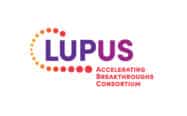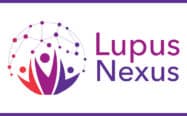November 12, 2019
Two positive clinical studies presented at the 2019 ACR/ARP Annual Meeting were conducted through the Lupus Clinical Investigators Network (LuCIN) formed and managed by Lupus Therapeutics, an affiliate of the Lupus Research Alliance. Results of both studies hold promise to improve how physicians can better monitor lupus patients’ symptoms and disease activity.
Abstract # 1919: Development of a Multi-Modality Imaging Approach to Evaluate Lupus Nephritis
Invasive surgical kidney biopsy is currently the standard for how physicians monitor Lupus Nephritis (kidney damage) among people with lupus, while kidney function is usually evaluated using blood tests and urine samples. Researchers conducting the DIVINE study aimed to test a multi-modality imaging approach to provide a tool that could accurately monitor kidney damage without needing to surgically remove a sample of the kidney.
Reported by Peter Lipsky, MD, initial results with a small number of patients found that using four types of imaging is feasible to provide a more sensitive and effective non-invasive tool to assess lupus nephritis, its progression and the effects of treatment.
Abstract # 662: Utility of a Mobile Phone Based Application to Collect Patient-Reported Outcome
Information from People Living with Systemic Lupus Erythematosus The study called VAlidation in LUpus of an Electronic Patient Reported Outcomes Tool (VALUE) showed that a custom smartphone app effectively enabled lupus patients to report on their health-related quality of life, fatigue and other symptoms in real time rather than completing surveys during periodic visits to physicians’ offices.
Sponsored by the Lupus Research Alliance and conducted through the app was designed with input from people with lupus to capture Patient Reported Outcomes (PROs). Among the 80 people enrolled in the study, 88 percent complied with the study directions, meaning that they used the app to complete the questionnaires at the scheduled time. The quality of the data collected with the app was comparable to that using a paper form. Researchers concluded “the app affords the potential opportunity to acquire frequent and highly reliable information about the impact of disease and response to medication in individuals with SLE.”






